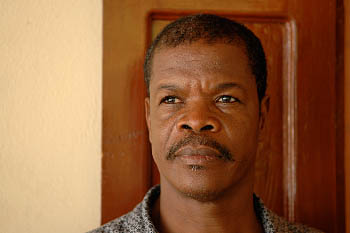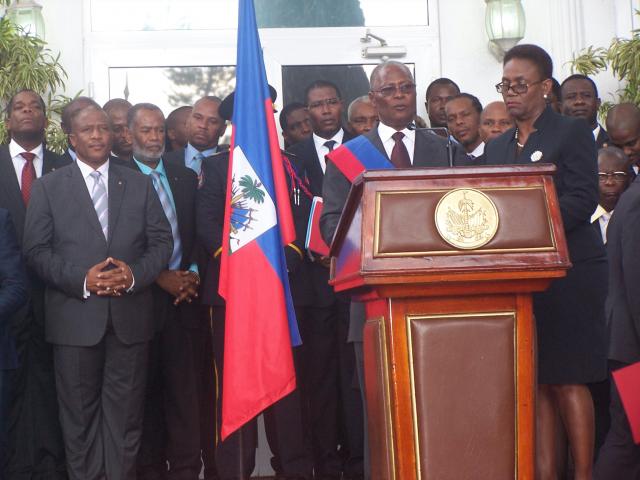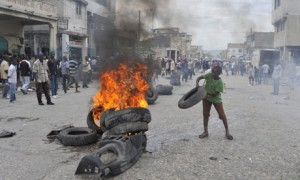by Kim Ives, originally posted at Haïti Liberté
 Aug. 12, 2017 marked the 10th anniversary of the disappearance of Haitian human rights activist Lovinsky Pierre-Antoine, then 52, who had days earlier announced his candidacy for Senator under the banner of the Lavalas Family party of then-exiled former President Jean-Bertrand Aristide.
Aug. 12, 2017 marked the 10th anniversary of the disappearance of Haitian human rights activist Lovinsky Pierre-Antoine, then 52, who had days earlier announced his candidacy for Senator under the banner of the Lavalas Family party of then-exiled former President Jean-Bertrand Aristide.
Lovinsky had just finished a busy day of meetings and travel to Haiti’s countryside with an international human rights delegation, whose members he had dropped off at their guest-house further up the Delmas Road from his home behind the studios of Haitian National Television (TNH) on Delmas 33. Alone, he drove away from them in a jeep that night of Aug. 12, 2007 and was never seen again.
Hearing of the disappearance, Haïti Liberté journalist Kim Ives called Lovinsky’s cell phone about 36 hours later, on the afternoon of Aug. 14.
“At that time, it was not known that Lovinsky was kidnapped, just that he had disappeared,” reported Haïti Liberté on Oct. 21, 2007. “The man who answered the cell phone told Ives that Lovinsky had indeed been kidnapped. ‘I am responsible for this affair [the kidnapping],” the man told Ives. ‘Why have you kidnapped him?” Ives asked. ‘For money,” the kidnapper responded.
Continue reading A Decade Later, Mystery Still Shrouds Lovinsky Pierre-Antoine’s Kidnapping





